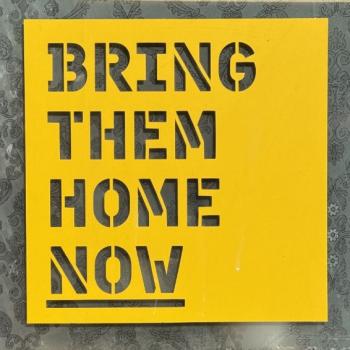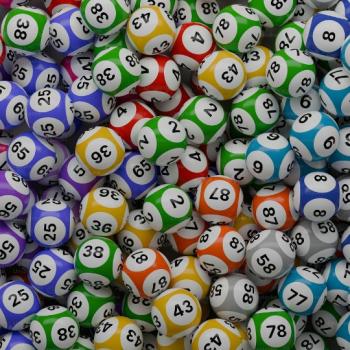The thing about deception is that we don’t know it’s there. That’s why we need to examine our “righteousness” more than our sinfulness.
(My thoughts today are heavily influenced by Brian McLaren’s A New Kind of Christian, and Jonathan Wilson-Hartgrove’s Reconstructing the Gospel.)
Regardless of the election outcome, one thing will not change: the world will still be rife with injustice, tragedy, and abuse of power.
Okay, two things will not change. The second one is our obligation to shine the light of Jesus in the world.
Let me remind conservative readers: I spent most of my life conservative, Evangelical. I know the mindset well.
I left that world about six years ago. I was very deliberate and self-aware as I made the choice, then took the steps, to disengage with Evangelicalism and walk away. I urge you to take my journey seriously.
Defining sin
Growing up, I was a good girl – not perfect, but well-behaved. On Sunday mornings, when we reached that “moment of silence for confession,” I was always done early. I was always a bit proud of myself for having sinned so little during the week. (“I’m sorry for arguing with my brother yesterday, getting a wrong answer on a spelling test Monday, and not making my bed before church”).
Another childhood recollection: when doing homework for religion class (Christian school, obviously), if I accidentally didn’t use a capital H for Him/He when referring to God, I’d erase the lower case letter, change it to a capital, and then ask God to forgive me. Nobody told me that was a sin, but I figured it was.
These snapshots are an indication of what I’d learned about the nature of sin: they are very individual, discreet actions. You commit a sin when you defy or absent-mindedly break a rule. You “backslide” or “give in to temptation.” You feel guilt, you confess, and you try again.
You grow up and the sins become more nuanced. You learn to rationalize some of them, but it’s still a rules-based system, and you know the rules.
In my “awakening,” I began to look at everything – including the concept of sin – with new eyes (#gracecoloredglasses).
Sins that Jesus called out
My awakening was precipitated when my longtime conservative Christian community (CCC) pulled a Jesus-cleansing-the-Temple on me about an issue in which I knew in my heart they were in the wrong. They drove me away.
That spiritual abuse brought me to a literal come-to-Jesus moment: I realized that status quo Christianity is defective.
If you are a conservative Christian and still reading, I encourage you to stay with me. Learn the easy way what I (and my family) learned through trauma and pain. For me, it required leaving. Maybe you can call attention to the flaws and begin to fix them.
I was too traumatized to open my Bible at that time, so I fell back on a lifetime of Scripture reading and memorization. I flipped through my mental Rolodex, skimming Jesus’ interactions with people to discover how well-meaning, devout Christians could do what my CCC had done – and believe they were in the right.
I remembered how the Pharisees asked, “Shall we stone this adulteress?” (i.e. should we follow the current rule, or will you give us a new rule?) Jesus’ answer: no rule, only compassion and forgiveness for the woman. For the Pharisees, there was a scolding (John 8).
I thought about the lawyer who asked Jesus, “Who is my neighbor?“ (i.e. how many people do I have to love before I can stop?), and the disciple who asked, “how many times do I have to forgive?” (i.e. when can I start holding grudges again?) Jesus’ answers weren’t rules, but mandates: love all people extravagantly, and forgive tirelessly (Luke 10, Matthew 18). Sin is present in refusal to love and forgive.
The Pharisees asked, “Why don’t your disciples wash their hands?” (i.e. why aren’t you making them follow the rules?) Jesus replied that externals matter little – the heart matters much (Mark 7). Sin is a heart condition.
Connecting the dots
The Pharisees and their ilk made the rules, and kept them scrupulously. They berated rule-breakers – never questioning the appropriateness of the rules. They were deceived into believing that right behavior is the one thing needful.
Their system was so engrained that, when it led them to hand Jesus over for the death sentence, they didn’t give it a second thought. It was their religious duty – it was the righteous thing to do.
I began to see what my CCC did not recognize: they were the Pharisees – and so was I. We’d been piously making and keeping rules, and it never occurred to us to discern whether those rules were of God. We were deceived.
We identified with Jesus the mentor and hero, instead of with the Pharisees who needed to learn Jesus’ ways.
We Christians don’t like to think of ourselves as the bad guy. We’re the ones who have arrived: we’ve been saved by grace, and now it’s our job to save more people. Jesus’ conversations and parables are our instruction manual for how to interact with sinners.
In this paradigm, our understanding of sin is deceptively simplistic. We don’t examine the larger assumptions: is there more to my sinfulness than meets my eye?
In the moment when I saw myself in the Pharisees, I was in position to grow. I also recognized what I was walking away from: the deceptiveness of believing you’re right/righteous.
A legacy of “righteous” sin
That’s exactly how the Crusaders did what they did, and the pro-slavery Christians, and the pro-Jim Crow Christians, the Christian congregations that attended Sunday lynchings, and those that lived next door to the Holocaust. To be honest, that’s what is behind the acceptance of baby cages, police brutality, and many other policies that Christians refuse to question. We’re deceived, and we don’t know it because, well, that’s how deception works.
In the CCC, we keep telling each other that we’re doing the right thing, and we’re so misunderstood by those liberals and atheists. But how many of us have really examined our beliefs and actions, and held them up to the light of Scripture? How many CCC folks have taken this little post seriously enough to read this far? How many would much rather read something that they already agree with?
Often, our greatest sin is in that thing we believe is our religious duty.
(Please consider subscribing to my blog.)
FEATURED IMAGE: “Rain” by Robrrt is licensed under CC BY-NC 2.0













